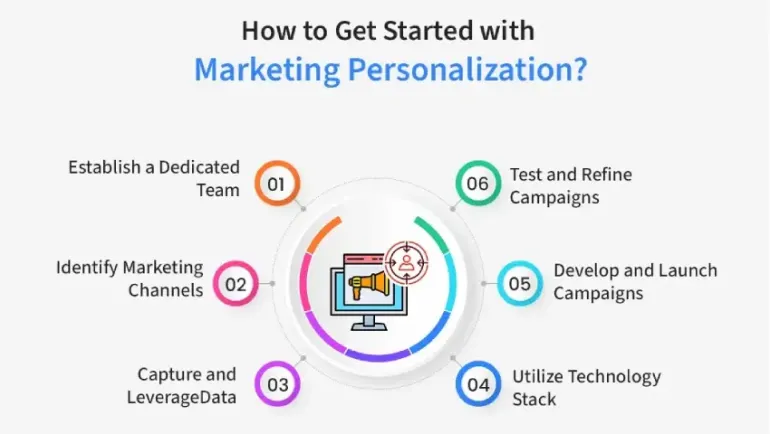
In today’s fast-paced digital world, brands no longer compete solely on product quality, price, or convenience; the game has shifted to personalization. “Adaptive Marketing” has emerged as a top strategy, allowing businesses to evolve their marketing tactics on-the-fly, meeting consumers with highly relevant and customized experiences. As 2024 shapes up to be the year of hyper-personalization, leveraging real-time data insights is more crucial than ever for companies aiming to enhance the consumer connection.This blog explores why adaptive marketing, driven by real-time personalization, has become an essential trend, delves into its impact on the consumer experience, and provides actionable insights on implementing these strategies effectively.
In an era where consumers are constantly connected across devices, the demand for instant gratification is at an all-time high. According to a recent study, 72% of consumers engage with brands only when interactions feel personalized and relevant. This is where adaptive marketing shines, as it is built on the ability to modify marketing messages, offers, and engagements dynamically based on consumer behavior. Key factors driving the trend of adaptive marketing include:
As technology becomes more integrated, brands have access to larger sets of consumer data than ever before. These insights allow marketers to understand individual preferences, behaviors, and purchasing patterns.
The rise of AI-powered marketing platforms has transformed data into actionable insights almost instantaneously. Machine learning algorithms continuously analyze customer behaviors, learning from each interaction to fine-tune personalization efforts.
With the increasing popularity of personalized content from platforms like Netflix and Amazon, customers expect the same level of attention from all brands they engage with.
Real-time personalization is the cornerstone of adaptive marketing, allowing companies to deliver tailored content, offers, and experiences to consumers in-the-moment. Here’s how real-time personalization works:
AI algorithms segment users based on their behaviors and preferences, identifying patterns in the data that help tailor future interactions. This is done within seconds, enabling a nearly instantaneous response to each consumer’s unique profile.
Using the insights gained from data analysis, brands deliver content, ads, or recommendations to each user based on their predicted preferences and needs. For instance, a retail site might recommend accessories that complement a product a customer has shown interest in, adjusting offers or discounts in real-time.
The advantages of implementing real-time personalization within an adaptive marketing strategy are numerous, both for brands and their customers:
Real-time personalization increases engagement by presenting consumers with relevant and timely information. Studies reveal that personalized messaging can lead to a 60% increase in engagement rates.
Personalized recommendations and content have a direct impact on conversions. Customers are more likely to make a purchase when they feel the brand understands their unique needs, with research showing that personalization can increase conversion rates by up to 20%.
When brands consistently deliver relevant, tailored experiences, customers are more likely to form a connection with the brand, leading to higher customer retention rates and long-term loyalty.
By focusing marketing efforts on those most likely to engage, brands can reduce wasted ad spend, optimizing their budget to achieve the highest ROI. Personalization allows businesses to focus their resources on high-intent customers, increasing the efficiency of marketing campaigns.
Several industry-leading companies have leveraged real-time personalization to enhance their adaptive marketing strategies:
Known for its precise recommendation engine, Amazon uses real-time personalization to suggest products based on browsing history, previous purchases, and customer search queries, providing a seamless and personalized shopping experience.
Through Spotify Wrapped and Discover Weekly, Spotify analyzes each user's listening habits to provide tailored playlists and recommendations, creating a highly engaging experience that has become central to its brand identity.
Starbucks’ mobile app gathers real-time data on customer preferences and locations, allowing the brand to offer personalized recommendations, rewards, and promotions, fostering customer loyalty through convenient, targeted interactions.
To achieve a successful adaptive marketing strategy with real-time personalization, brands need to focus on a few core elements:
Machine learning and AI are foundational to adaptive marketing. These technologies enable brands to gather, analyze, and interpret data at scale, providing the speed and accuracy needed to deliver real-time personalization.
As personalization grows more sophisticated, it’s essential that brands prioritize data privacy and security. In 2024, with privacy laws evolving, transparency regarding data collection and usage is essential for building consumer trust. Brands should implement clear policies on data use and provide customers with control over their information.
Predictive analytics allows brands to anticipate future actions based on past behaviors, making it easier to personalize content at the exact moment a customer may be interested. Retail brands, for example, can use predictive analytics to offer products related to the ones that customers have recently viewed.
Continuous testing is crucial for adaptive marketing success. A/B testing different types of personalized content ensures that brands can identify which strategies resonate best with different segments, continually optimizing for better performance.
Consumers interact with brands across various platforms and devices. To create a seamless experience, adaptive marketing strategies should integrate personalization across all channels—whether mobile, web, email, or social media. This omnichannel approach reinforces brand consistency and enhances customer experiences.
As technology advances and customer expectations evolve, adaptive marketing driven by real-time personalization will become a standard practice in the digital marketing landscape. Brands that invest in this approach today are setting themselves up to deliver unique, tailored experiences that foster long-term loyalty and drive higher conversions.In 2024, real-time personalization is not just a nice-to-have but an essential component of a brand’s success. By understanding customer preferences and delivering relevant, in-the-moment experiences, companies can build deeper consumer connections, ultimately leading to more significant growth and a competitive edge in the marketplace.



-112x63.27.webp)




-132x74.57.webp)



Comments
There are no comments for this Article.